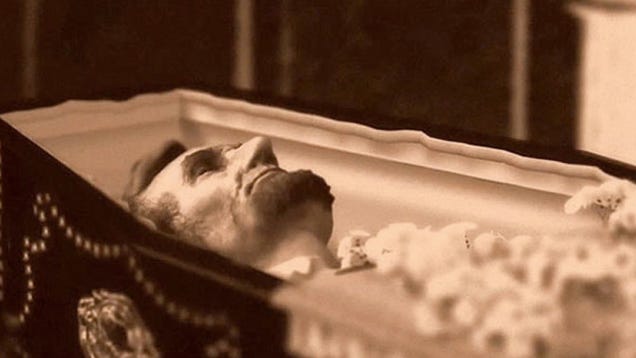by Midnight Freemason Contributor
Bro. Steven L. Harrison 33˚, FMLR
Author's note: This is in no way meant to be a political post. It is an account of events that occurred nearly a half-century ago with no intent to imply any relationship to events of today.
The 1956 Pulitzer Prize-winning book, Profiles in Courage, is a series of biographies of eight United States senators who endured criticism and personal loss after unpopular acts they each thought were the right thing to do. Among those accounts are courageous votes of Masonic Brothers Thomas Hart Benton and Sam Houston, both of whom opposed extending slavery into the US territories, and subsequently lost elections because of their actions.
Such politicians taking action against the majority views of their constituents in spite of the consequences are a rare breed. Another of our Masonic Brothers, Gerald Ford, falls into that category.
Living in an intensely divided nation today, it is hard to imagine a time when the mood of the country, short of the Civil War era, may have been more politically separated or rancorous, but the Vietnam/Watergate era of the early to mid-1970s clearly qualifies for that.
In 1968, Richard Nixon, after losing a close presidential race to John Kennedy in 1960, made the political comeback of the century. He won the presidency with a promise to end the unpopular Vietnam War. Instead, he expanded the war, even taking it into countries neighboring Vietnam. With those actions, war protests, which had been going on for years, hit a new level of intensity.
At the same time, Nixon's acerbic Vice President, Spiro T. Agnew, who himself had been intensifying the divisions in the country, came under fire for corrupt practices while Governor of Maryland. After a two-year acrimonious battle, Agnew pleaded nolo contendere to felony tax evasion, was fined, and placed on probation. With that, Agnew resigned from the vice presidency and President Nixon selected long-time Republican congressman Gerald Ford to succeed him.
With all that going on, the 1972 presidential elections saw Nixon's re-election. Subsequently, his involvement in and cover-up of the 1972 break-in at Democratic headquarters gradually came to light, in what has now become known as the Watergate Affair.
So with the Vietnam War in full swing, war protests raging, the vice-president battling accusations of corruption, and Watergate grinding on, the US went through a three-year period of political meltdown. Nixon's involvement in Watergate, his lies, and attempts to cover up his actions finally brought him down. Leaders of his own party convinced him there were sufficient votes in both Houses of Congress to impeach and convict, leading him to resign the presidency before that happened. Brother Ford took office on August 9, 1974.
Ford took charge in the midst of all the political turmoil, wanting to put it in the past. Some of his first words to the country were, "Our national nightmare is over." But it wasn't. The country would now have to turn its attention to a laundry list of charges being brought against former President Nixon. The aftermath of his actions could have lasted for months, possibly years, through indictments, trials, endless rehashing of events, and a plethora of incessant and merciless windbags debating it all.
Ford saw it as his responsibility to end the turmoil and get the nation back to some semblance of normalcy. With that, he granted Richard Nixon a "full, free, and absolute pardon." Political opponents and even members of Ford's Republican party leveled a firestorm of criticism at the new president. They accused him, among other things, of making a deal with Nixon that would lead to Ford becoming president. That was not the case. The only deal Ford made was that Nixon had to admit guilt. Nixon accepted the pardon and withdrew to his home in San Clemente, removing himself from further involvement in the political arena.
John Kennedy, along with Ted Sorenson, wrote Profiles in Courage. Had they written it today, they might have included more than senators, and they may well have included Gerald Ford.
In fact, in a sense, he was included. In 1989, the Kennedy family established the "Profiles In Courage Award" in order to recognize the kind of political courage emphasized in the book. Then, in 2001, they named Ford the recipient of the honor, "for his courage in making a controversial decision of conscience to pardon former President Richard M. Nixon."
Brother Gerald Ford, 33°, was a member of Malta Lodge No. 465, Grand Rapids Michigan.
~SLH
Bro. Steve Harrison, 33° is Past Master of Liberty Lodge #31, Liberty, Missouri. He is also a Fellow and Past Master of the Missouri Lodge of Research. Among his other Masonic memberships is the St. Joseph Missouri Valley of the Scottish Rite, Liberty York Rite bodies, and Moila Shrine. He is also a member and Past Dean of the DeMolay Legion of Honor. Brother Harrison is a regular contributor to the Midnight Freemasons blog as well as several other Masonic publications. Brother Steve was Editor of the Missouri Freemason magazine for a decade and is a regular contributor to the Whence Came You podcast. Born in Indiana, he has a Master's Degree from Indiana University and is retired from a 35-year career in information technology. Steve and his wife Carolyn reside in northwest Missouri. He is the author of dozens of magazine articles and three books: Freemasonry Crosses the Mississippi, Freemasons — Tales From the Craft and Freemasons at Oak Island.




